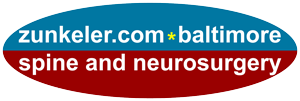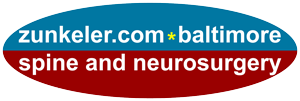Brain injury and concussion
Traumatic brain injury (TBI) ranges from very mild to severe and is one of the most common types of injury in the United States. According to the Centers for Disease Control and Prevention (CDC) , about 2.87 million TBI-related emergency department visits, hospitalizations, and deaths occurred in 2014; 837,000 of these were TBIs in children.
Concussions are the most common form of TBI and are particularly common in children. Approximately 300,000 TBIs per year are related to sports. Although concussions can occur in any sport, they are particularly common in football, wrestling, ice hockey, basketball, field hockey, and lacrosse.
Motor vehicle accidents, assaults, and falls also commonly result in TBIs and concussions of varying severity.
Early symptoms of concussion
Headache and confusion are common early symptoms of TBIs even after relatively mild injuries, with or without a true loss of consciousness. If you have sustained a concussion, you may not even remember the details of the injury (amnesia). Other symptoms sometimes include:
- loss of balance
- ringing in the ears
- dizziness
- headache
- nausea with or without vomiting
- temporary impairment of consciousness immediately after the injury (may be brief)
- slowed thinking (brain fog, slowed ability to answer questions)
- fatigue
- blurred or “double” vision
- increased sensitivity to sounds and/or light.
Young children and especially toddlers are particularly likely to sustain a head injury. The early symptoms of a head injury can be hard to recognize in this age group. Young children are often not able to describe what happened and how they feel different compared with the way they felt before the TBI. Parents and caregivers should look for nonverbal changes in a child’s behavior, including:
- appearing dazed, listless, and more tired than usual
- being more cranky (irritable) than usual, including unusual and inconsolable crying
- losing balance more easily and being more unsteady while walking
- eating or sleeping more or less than before the injury.
Delayed and long term symptoms of concussion
Individuals may report some of the following symptoms of concussion immediately or hours to days later even after a relatively mild TBI:
- altered or absent sensation of smell and taste
- problems related to memory
- difficulty concentrating
- personality changes, including new-onset Irritability
- sensitivity to bright lights or loud noise
- sleep-related problems (either sleeping much more or much less than usual)
- psychological issues, including depression.
The symptoms people experience after a concussion are referred to as “post-concussion syndrome.” Fortunately, all or most of the symptoms associated with concussions significantly improve or completely disappear in most people within 2-6 weeks. However, in approximately 10-20% of people who suffer concussions, the bothersome symptoms may continue beyond 6 weeks. The chance of long-term symptoms increases in individuals who have experienced multiple concussions, particularly if the injured brain is not allowed enough time to heal between concussions. There is concern that repeated concussions can lead to lasting psychological and behavioral changes, particularly depression.
From a diagnostic and treatment standpoint, it is important for an individual who has sustained a concussion to see a knowledgeable medical provider within 1-2 days of the injury, even if an initial workup in an emergency department did not show an acute anatomically obvious brain injury on diagnostic imaging (head CT or MRI). For athletes, a gradual return to sports activities under the guidance of a skilled medical provider is recommended. Too early a return to play and failure to allow the brain enough time to heal can, in very rare and tragic instances, lead to “second impact syndrome,” resulting in death or severe permanent neurological disability even if the second TBI appears to be relatively minor.
OFFICE HOURS
| Monday – Friday | 8:30 – 4:30 |
| Saturday | closed |
| Sunday | closed |

